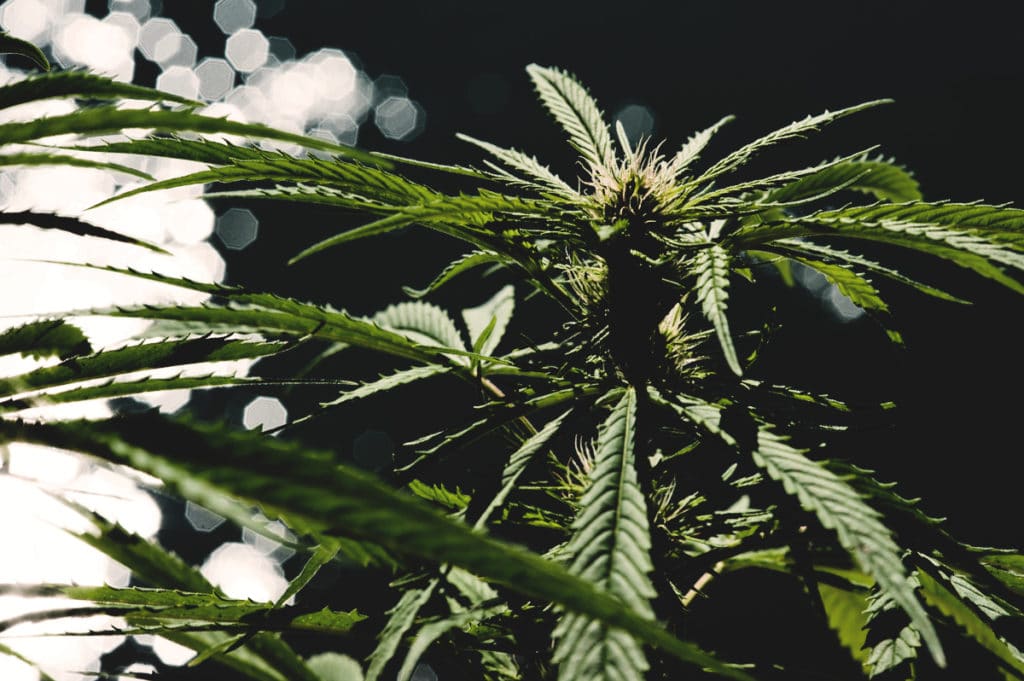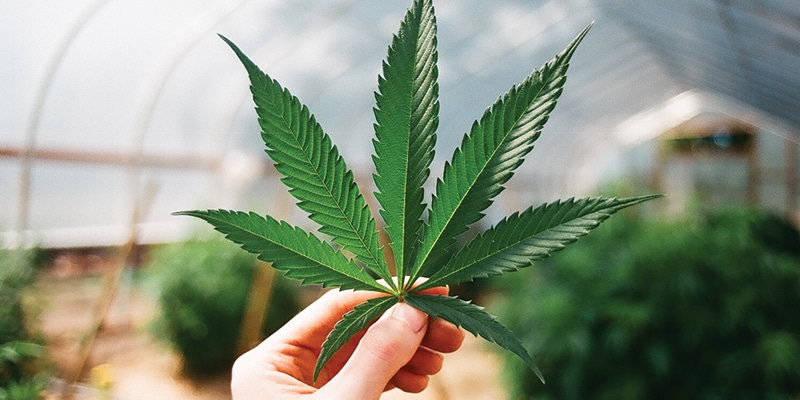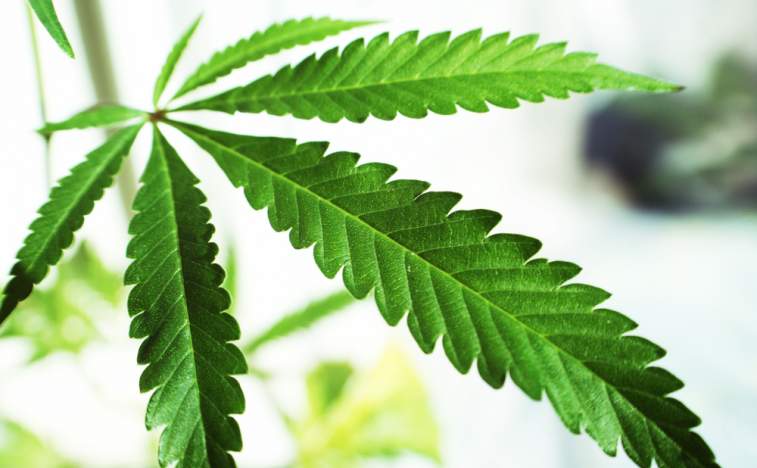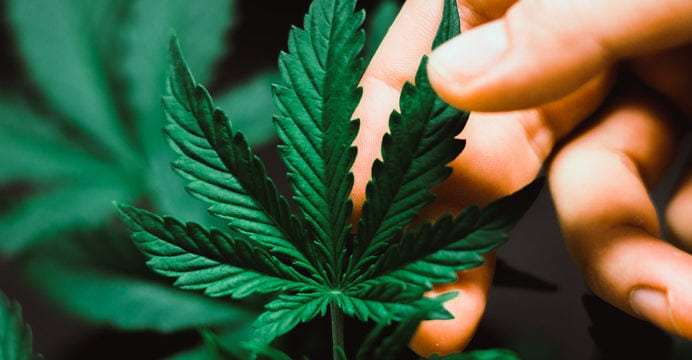CBD CONDITIONS & TREATMENTS
CBD Treatment Case Fungal Infection

In the early 1980s, there were some discoveries that led to an understanding that CBD was a particularly important part of the equation of trying to battle against fungal infection. In fact, we have seen noteworthy antifungal properties demonstrated by several different cannabinoids found in the cannabis plant: CBD, CBG, and CBC.
One might ask oneself, why on earth should this be the case?
In fact, it has to do with something of an ultimately Darwinian origin. As we now understand it, these particular cannabinoids function as the evolved defense of the cannabis plant and its leaves and flowers against attackers from the bacterial or fungal realm.
Another consequence of this outcome is that farming cannabis and hemp is particularly easy because the plants come with a ready-made internal defense and therefore demand far less in the way of pesticides and other dangerous chemicals that threaten the soil of the farm.
Evolution, Terpenes, Cannabinoids, and Defense
As noted above, this strange mix of internal defense is due to the presence of certain potent cannabinoids. However, there is also another weapon in this plant’s arsenal that comes in the form of a terpene known as caryophyllene oxide.
While this particular terpene is precisely the stuff that alerts drug sniffing dogs in a canine unit to the presence of marijuana in an airport, it is also a potent and powerful weapon in the war against fungus.
Terpenes are actually a class of compound that is found across the plant kingdom. They are most important in terms of their production of smells on the spectrum that human beings respond to in a significant manner. Anytime that you decide that a particular plant has a particular scent, you are responding to terpenes found in that plant.
But there are many other functions of these compounds, including anti-inflammatory, palliative, and anxiety-reducing functions.
This is because terpenes and cannabinoids share a common precursor in the biochemical pathways of time. And that means they have a puzzle-piece relationship with the enzymatic and endocannabinoid systems found in the human body.
As we apply these thoughts to fungal infections, it is important to understand that playing field, which brings us to an important issue: Many people confuse and conflate the concepts of bacteria and fungus.
The Five Kingdoms
In fact, this is an error: bacteria are entirely separate from the rest of the kingdoms of life in a primary sense given the fact that they are prokaryotic – meaning that their basic cell structure lacks a nucleus.
By contrast the other four principal kingdoms of life – fungus, protists, plants, and animals – all our eukaryotic (meaning that they’re based on a cell structure that includes a nucleus). Hence, when trying to find ways to kill bacteria, it’s quite easy because most of the things that kill bacteria won’t also kill the cells in your own body.
However, if you’re trying to kill off a fungal infection, you’re going to need to use tools that kill eukaryotic cells, of which your own body is made. This makes the job of defending against a fungal infection far more complicated than that of defending against a bacterial infection, as you might imagine.
It turns out that CBD is an extraordinary tool because of the existence of cannabinoids evolved to protect the plant against fungal infection.
For example, with CBD, CBG and CBC both caused eradication of onychomycosis in a clinical study. This is a common fungal infection in humans. The cannabinoid solution worked at rates comparable to cyclopiroxolamine and sulconazole, two common pharmaceutical antifungals.
The Path Forward
While we don’t understand precisely the way in which these compounds function so effectively in the fight against fungal infections, we do understand that they appear to work just as comprehensively and effectively as common current pharmaceutical solutions.
The goal from here is about further research, some fine-tuning, and spreading awareness
BENEFITS OF CBD
What Works Best for Treating Pain with CBD Tincture, Soft gels or Creams? #CBD Tincture #Best All Organic CBD Cream

Cannabidiol (CBD) products such as oils and topicals have become a popular natural remedy for pain. While research is still underway, first-person accounts of the benefits are taking the world by storm.
New products are popping up in every direction you look from CBD oil and CBD tinctures to CBD cream and CBD soft gel capsules. So, no matter your preference, there is a form of CBD to help you treat your pain. Treating pain and inflammation is part of the many benefits that CBD offers the user. Let’s take a deeper look into CBD and pain:
What is CBD and will it make me high?
Many people are skeptical of using CBD as a remedy because of the connotations that come with using a compound that comes from the cannabis or hemp plant. In fact, CBD is the non-intoxicating compound of the cannabis plant and will not make you ‘high’ as if you were smoking marijuana.
The more well-known compound of the plant, THC (tetrahydrocannabinol) is what creates the high. Some CBD oils carry trace amounts (less than 0.3%) of THC. However, oils derived from hemp rather than cannabis do not contain any THC and these are legal in all 50 states across the USA.
How CBD works to reduce pain
When it comes to CBD and pain, this affects the endocannabinoid system in the human body. The endocannabinoid system creates endocannabinoids (its own cannabinoids). The system receives and translates signals from the endocannabinoids and any cannabinoids from CBD products throughout the body.
The endocannabinoid system regulates a variety of functions in the human body. These include immune system responses, sleep and most notably, pain. While CBD does not directly affect the endocannabinoid system according to available research, it does initiate the activation or inhibitions of certain compounds in the body.
CBD in the body can cause a reduction in the absorption of anandamide, a neurotransmitter that helps to regulate pain. Thus, CBD will cause the body to absorb less anandamide, increasing levels in the bloodstream, leading to relief from pain.
The effects of CBD on inflammation to treat pain
Inflammation is the body’s protective response against harmful stimuli. Inflammation is often accompanied by pain, redness and swelling. By treating the cause of the inflammation, you can relieve the pain you might be feeling.
This is one of the most popular ways that CBD is being used as a natural alternative remedy. Since inflammation is one of the body’s immune responses, it is regulated by the endocannabinoid system. So, once again, CBD interacts with neuroreceptors in the body to deliver an anti-inflammatory effect.
By reducing areas of inflammation in the body, CBD can, therefore, help to relieve the pain caused by inflammation. Sometimes the body triggers inflammation when there is no harm done to the body, such as in the case of many autoimmune diseases. CBD oil can greatly help remedy the symptoms of these diseases.
Finding quality CBD products
When using CBD products to relieve pain, you want to find a high-quality CBD product. Be sure to check the details of the oil, tincture or topical that you intend to buy. You want to look for information such as the THC percentage and ensure it is a hemp-derived CBD (especially if you live in a state that has not yet legalized marijuana).
Purchasing your CBD products from a trusted supplier like Greenleaf Farms will ensure that you are receiving a high-quality product. Their hemp is grown under the perfect conditions with no pesticides or herbicides used.
When purchasing from a trusted supplier, it generally comes with the guarantee that you are receiving a pure and authentic CBD to treat and relieve your pain and inflammation. You can also rest easy knowing that your CBD product has been produced with care and your health in mind.
BENEFITS OF CBD
CBD and Depression Treatments

Harvested from the marijuana plant, cannabidiol (CBD) is extracted from the leaves after harvesting. Although marijuana is known for its mood-altering components, CBD is not one of them. The THC (tetrahydrocannabinol) in cannabis is the main compound in marijuana that causes this effect.
CBD products have minimal traces of THC in them, so there is no chance that this compound can have any adverse effects on the user. The legal requirement is that CBD must contain 0.3% or less THC. Producers who don’t comply risk having their product seized and growing license revoked. The tiny amounts of THC mean that CBD cannot cause the stereotypical high that most people associate with marijuana use.
There are several CBD products the user can choose from, including CBD oil, CBD ointment, and CBD tincture. The conditions it is used for prescribes how CBD should be ingested. Greenleaf Farms’ products come in a large range designed to suit the needs of any user.
As more and more people turn to CBD as an alternative remedy, the list of conditions for which it is recommended is growing. Among them is CBD and depression.
Is there a connection between CBD and depression support?
Depression is caused by a chemical imbalance in the brain. The neurotransmitters that are responsible for communication between the brain and the rest of the body are out of sync. The neurotransmitter most associated with depressive disorders is serotonin.
CBD has been shown through studies to interact positively with the serotonin neuroreceptors in the brain. This helps to maintain healthy serotonin levels.
Serotonin is essential for a feeling of well-being. It can govern a person’s emotional state. An imbalance can cause havoc on a person’s emotional and physical health.
Most people with depression have to take antidepressant medication. The most common antidepressant is fluoxetine, which people may know by the name Prozac. Prozac is an SSRI (Selective Serotonin Reabsorption Inhibitor). The drug prevents the body from losing serotonin through reabsorption into the body. This function allows SSRIs to help maintain steady serotonin levels in the brain of the user.
Other neurotransmitters targeted by certain antidepressants are noradrenaline and dopamine. When an SSRI doesn’t produce the desired result, a doctor will prescribe these drugs to a patient.
The side effect debate
While pharmaceutical drugs might be helpful to a depression sufferer, they have a lot of side effects. These include:
- A notable increase or decrease in appetite
- Weight gain or loss
- Changes in sleep patterns
- Mood swings
- Sexual dysfunction such as a loss of the libido
In addition to these side effects, antidepressants may have the opposite effect of that which is desired. This can lead to deepening depression, thoughts, and acts of self-harm, suicidal ideation, and the act of suicide itself.
Another serious implication of taking antidepressants is that some of them are habit-forming. The patient develops a dependence on them, which may be hard to quit.
While CBD has its own side effects, many users report that they are less severe than those of antidepressants. The side effects of CBD are similar to those of most antidepressant medication.
Is there a real possibility that CBC can help patients with depression?
While CBD has been shown in animal studies to have an antidepressant-like effect on its subjects, it is by no means an antidepressant. Scientists are still studying how it works. However, what has been discovered to date bodes well for CBD as a potential treatment for depression.
As a natural remedy, CBD is easier for the body to process, unlike prescription drugs. People who favor a more organic approach to treatment are turning to CBD in the hopes that it will reduce or eliminate the need for antidepressants.
People in treatment should NEVER abandon the medication regime their doctor has prescribed. Doing so can pose a severe threat to their future well-being. An alternative such as CBD oil should always be discussed with a medical professional before implementing its use.
BENEFITS OF CBD
Can CBD cure Colitis and Crohns?

Colitis and Crohn’s are two diseases with a number of similarities, and both characterized by gastrointestinal (GI) inflammation. However, the two are different in subtle ways that affect the kind of care given to people that have them.
Both diseases are currently treated in the same way – through proper use of medication that targets the inflammatory response and reducing symptoms. Particularly, reducing the frequency of flares – referred to as maintaining remission – is a useful goal. With the proper administration of treatment, periods of remission can be extended, and the frequency of flares reduced.
One of the emerging methods that have been under study and shows great potential for future drugs is CBD oil, perhaps due to its anti-inflammatory properties.
Current methods of diagnosis and treatment of colitis and Crohn’s
Crohn’s disease and ulcerative colitis are both inflammatory bowel diseases (IBDs) that are characterized by uncontrolled inflammation. This results in gastrointestinal symptoms, and, if left unchecked, necessitates surgery or may lead to disability.
Currently, we do not know what causes them nor do there exist drugs for treating them. At best, people suffering from the condition can have their quality of life improved by controlling the symptoms, inflammation and carrying out immune-based therapies.
More recent advancements in medicine have enabled the management of these symptoms through a process referred to as ‘deep remission.’ This involves objective evidence of biochemical changes in the bloodstream and has been attributed to marked improvements in patients’ well-being.
Despite these advances, there are still significant gaps in the treatment process of IBDs. A lot of patients suffer nonspecific symptoms such as loss of appetite, fatigue, nausea, and weakness. With the rise of CBD into the spotlight, especially after the legalization of hemp-sourced CBD oil, CBD and Colitis and Crohn’s ought to be tangled together in the near future.
All evidence we have so far seems to suggest that CBD can help in the management of the disease. Despite being renowned for its anti-inflammatory properties, there isn’t any definitive proof of it controlling inflammation in this case. Instead, it helps to keep a number of other symptoms in check.
Role of CBD in managing colitis and Crohn’s
Inflammation is an immune system response to attacks by foreign bodies. It helps to prevent infection and kill pathogens, but can also be harmful if it goes on for a long time. Often, the immune system goes awry and begins attacking itself, as is the case with Crohn’s disease, where the gut is continually under attack.
It’s also worthwhile noting that the human body is composed of networks of neurons and receptors found all over the body. The endocannabinoid system (ECS) is one such network, composed primarily of CB1 and CB2 receptors. The ECS is responsible for maintaining homeostasis in the body, including everything from controlling hunger, reacting to pain and controlling the circadian rhythm.
CBD oil has been shown to effectively combat nonspecific symptoms such as nausea, reducing pain and, most important of all, reducing inflammation. Scientists have not reached a solid conclusion regarding the latter of these effects, especially with regards to CBD and Colitis and Crohn’s disease.
Empirical and anecdotal evidence seems to point towards improvement in patient’s general health, work productivity and social functioning, and a subsequent reduction on pain and depression in patients. CBD has also been demonstrated to be very helpful in the relief of abdominal pain, diarrhea and an increase in appetite.
Each of these are currently known effects CBD tends to have on the body, and it doesn’t come as much of a surprise the same can be achieved in people with Crohn’s/Colitis. Major CBD outlets lime Greenland Farms have also routed a decrease in the need for Colitis-related medication upon the use of CBD oil for treatment.
We may not currently have concrete evidence to support the action with which CBD is thought to act, but it definitely leads to a definite improvement in the quality of life of people with Crohn’s/Colitis.







Pingback: CBD Treatment Fall Mushroom Infection
Pingback: CBD treatment case fungal infection